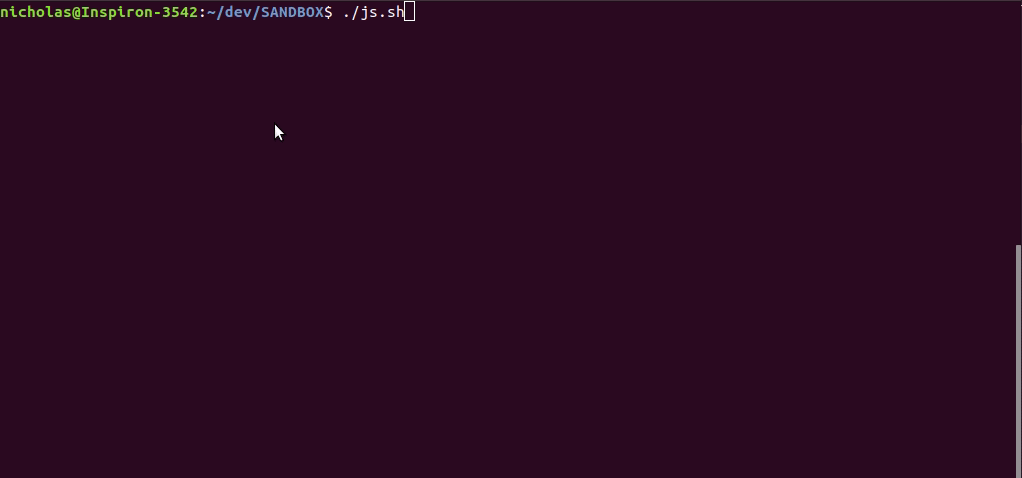JavaScript exhibits asynchronous behaviour for operations that are not completed immediately e.g a HTTP request or timer. These operations accept callbacks — functions which are executed when an operation has been completed.
setTimeout(function() { console.log('Slow and steady wins the race.'); }, 5000);
console.log('The last shall be the first!');

If you’ve written JavaScript for a while, you’re probably familiar with callback hell. Callbacks can easily make code unreadable and difficult to reason about. Thankfully, we have Promises!
Promise objects represent the eventual completion or failure of an async operation. We can wrap a function that accepts a callback in a Promise and use the fulfillment handler .then() to retrieve returned data and/or continue performing other operations.
const slowAndSteady = new Promise(function(resolve, reject) {
setTimeout(function() {
console.log('Slow and steady wins the race.');
resolve();
}, 5000);
});
slowAndSteady
.then(function() {
console.log('The last shall be the first!');
});

Better still we can now use Async/Await (ECMAScript 2017/ES8) — synctactic sugar for Promises — to make our JavaScript simpler and easier to read.
const slowAndSteady = new Promise(function(resolve, reject) {
setTimeout(function() {
console.log('Slow and steady wins the race.');
resolve();
}, 5000);
});
(async function() {
await slowAndSteady;
console.log('The last shall be the first!');
})();

There’s a little problem though. It’s very easy to forget to handle Promise rejections, and this can lead to hard-to-debug issues. If we fail to handle a Promise rejection, we’re shown the UnhandledPromiseRejectionWarning by Node.js.
const slowAndSteady = new Promise(function(resolve, reject) {
reject();
});
(async function() {
await slowAndSteady;
})();

We also get the warning if an error (e.g validation error) is thrown inside the Promise.
const slowAndSteady = new Promise(function(resolve, reject) {
throw new Error('Summ just happen right now :(');
});
(async function() {
await slowAndSteady;
})();

If you didn’t already notice from the warning, “Unhandled promise rejections are deprecated. In the future, promise rejections that are not handled will terminate the Node.js process with a non-zero exit code”. This means not handling Promises properly can crash your app!
You can handle Promise rejections by using the failure handler .catch() or a try/catch block.
const slowAndSteady = new Promise(function(resolve, reject) {
reject();
});
slowAndSteady
.then(function() {
console.log('The last shall be the first!');
})
.catch(function(err) {
console.log('error: ', err);
});

const slowAndSteady = new Promise(function(resolve, reject) {
throw new Error('Summ just happen right now :(');
});
(async function() {
try {
await slowAndSteady;
} catch(err) {
console.log(err);
}
})();

It’s not that simple though. Things become more interesting when you have a chain of Promises.
const promise1 = new Promise(function(resolve, reject) {
throw new Error('Promise 1 has tanked.');
});
const promise2 = new Promise(function(resolve, reject) {
promise1.then();
});
(async function() {
try {
await promise2;
} catch(err) {
console.log(err);
}
})();

We still get the warning even though promise2 is wrapped in a try/catch. Wrapping a whole function with try/catch won’t cover all Promises!
It’s obvious that proper exception handling is needed in promise2.
const promise1 = new Promise(function(resolve, reject) {
throw new Error('Promise 1 has tanked.');
});
const promise2 = new Promise(function(resolve, reject) {
promise1.then().catch(function() { reject(); });
});
(async function() {
try {
await promise2;
} catch(err) {
console.log(err);
}
})();
But you might not be able to anticipate where exception/error handling may be needed especially when working with third party libraries. You can use the following code to catch all unhandled Promise rejections.
process.on('unhandledRejection', function(err) {
console.log(err);
});
If you use error tracking software, this is a good place to notify your team about the error so that it can be fixed ASAP!
process.on('unhandledRejection', function(err) {
console.log(err);
// sendInTheCalvary(err);
});
const promise1 = new Promise(function(resolve, reject) {
throw new Error('Promise 1 has tanked.');
});
const promise2 = new Promise(function(resolve, reject) {
promise1.then();
});
(async function() {
try {
await promise2;
} catch(err) {
console.log(err);
}
})();

Last modified on 2019-04-25